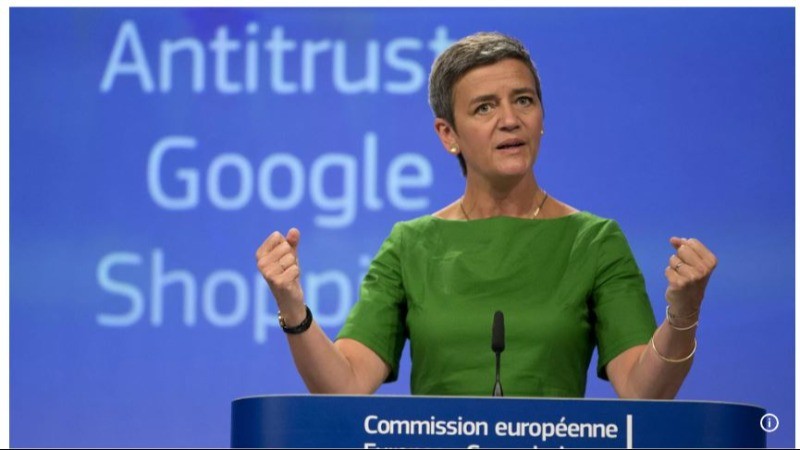
Margrethe Vestager, the European Union's antitrust chief, achieved significant victories on Tuesday as Europe's highest court supported her actions against Apple's Irish tax deal and Google's anti-competitive practices. These landmark decisions mark a pivotal moment in her tenure, which concludes in November.
Vestager has been known for her aggressive stance on Big Tech's tax strategies and their attempts to hinder smaller competitors. These recent court rulings could set a precedent for her successor to continue her approach.
Celebrating the judgments, Vestager described the decisions as major wins for European citizens and tax fairness. She highlighted the Apple ruling on X (formerly Twitter) and praised the Google decision as a significant achievement for digital equity.
In 2016, the European Commission ordered Apple to pay 13 billion euros ($14.4 billion) in back taxes to Ireland. The ruling stated that Apple benefited from two Irish tax rulings over two decades, which allowed it to reduce its tax rate to as low as 0.005% in 2014.
The Luxembourg-based Court of Justice of the European Union upheld Vestager's decision. The court confirmed that Ireland granted Apple unlawful aid, which the country must now recover. The judges noted that Apple's Irish units received preferential tax treatment compared to local companies that did not benefit from such favorable rulings.
Apple expressed disappointment with the ruling, asserting that it had paid $577 million in taxes—12.5% of its profits in Ireland from 2003 to 2014, in accordance with Irish tax laws. Apple argued that the European Commission's decision attempts to retroactively alter tax rules and overlooks that its income was taxed in the U.S. as required by international tax laws.
Ireland, which had attracted Big Tech companies with its low tax rates, also contested the EU's ruling. The country maintained that its tax treatment for intellectual property is consistent with other OECD nations. Despite this, Ireland has cooperated with global tax reforms and accepted a reduction in its 12.5% corporate tax rate, although its tax revenue from multinational firms has increased.
The court also rejected Alphabet's appeal against a 2.42 billion euro fine imposed by Vestager seven years ago for anti-competitive practices. This fine was the first of three substantial penalties imposed on Google.
The judges found that Google's conduct was discriminatory and did not align with fair competition practices. Google expressed disappointment with the ruling, noting that it had made changes in 2017 to comply with the European Commission's decision.
Over the past decade, Google has faced 8.25 billion euros in EU antitrust fines. It is currently appealing two other decisions related to its Android operating system and AdSense advertising service and awaits rulings on these cases. The company is also contesting new antitrust charges from last year, which could force it to divest part of its adtech business.
Both rulings are final and cannot be appealed. Ongoing investigations include tax arrangements involving IKEA's Dutch subsidiary, Nike's Dutch tax agreement, and Huhtamaki's Luxembourg tax deal.